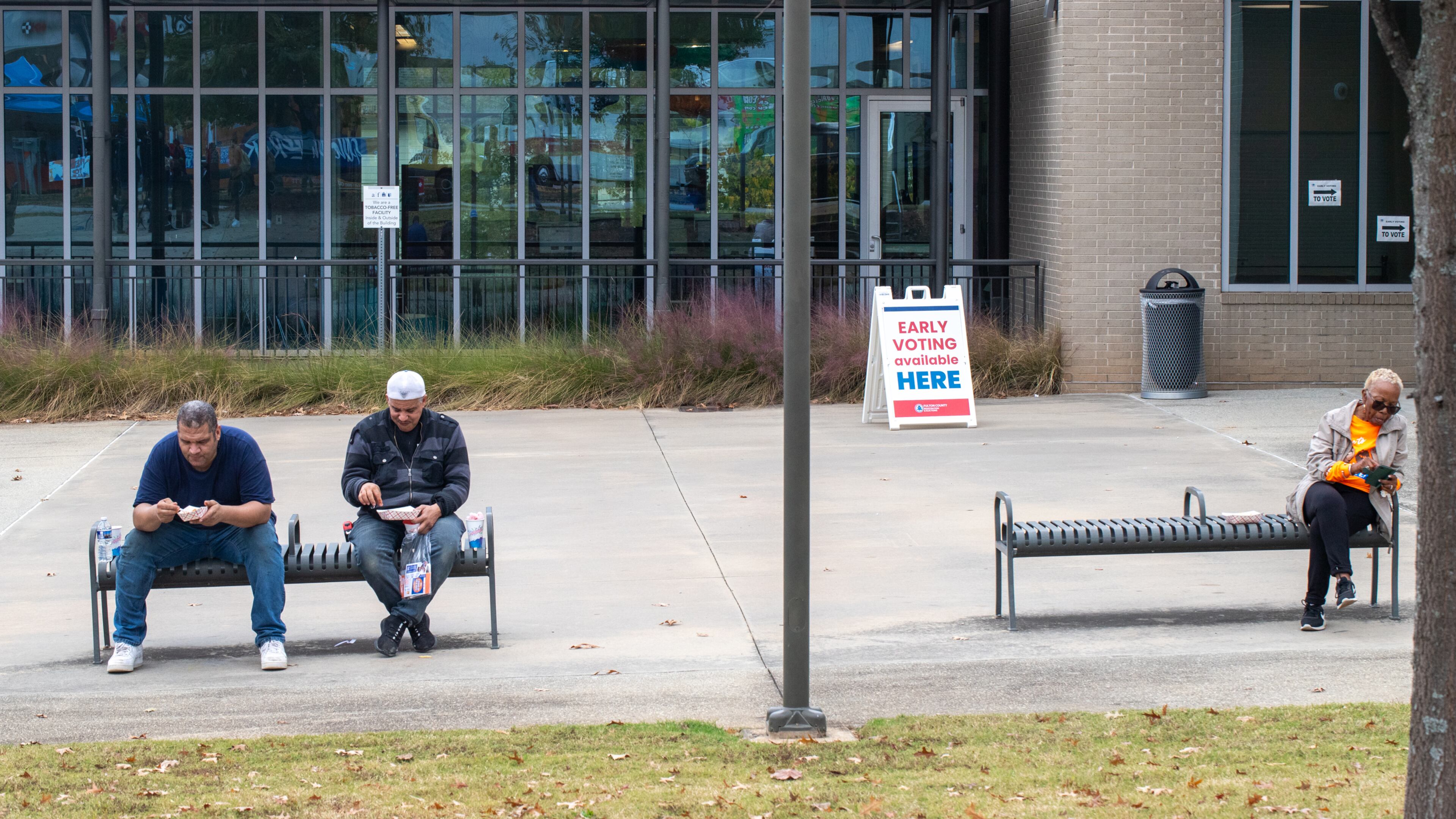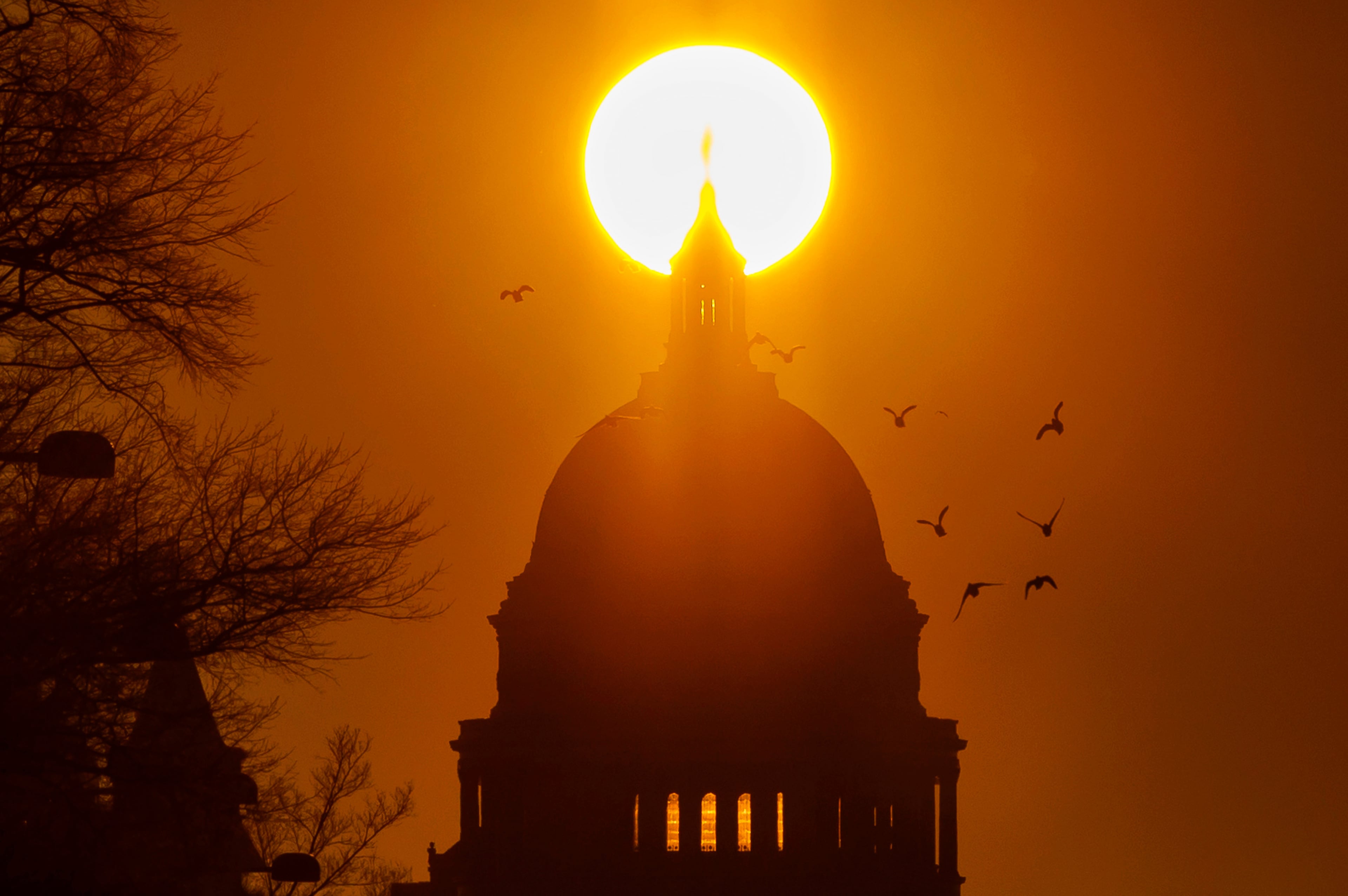RHONE: Cure for postelection anxiety? Learn to live with uncertainty

In postelection America, we will have to learn to live with a certain level of uncertainty.
Many of us have spent the last few weeks obsessing about Tuesday’s presidential election. Nowhere is this truer than in our newly minted swing state.
The presidential candidates have been obsessed with us as well.
We have endured massive traffic disruptions, the result of multiple visits from the candidates. Every week it seemed someone was stomping through Georgia in support of Kamala Harris or Donald Trump.
Strangers clogged our phones with text messages asking us to vote. Organizations filled our mailboxes with flyers touting the candidates’ attributes.
Canvassers came to our doors. Pollsters asked our opinions.
We saw endless television advertisements that angered or inspired us.
Our social media feeds were a continuous reel of politics.
Being inundated for so many months with election information, misinformation and disinformation left many of us anxious, exhausted and confused.
In late October, an American Psychological Association survey found that 77% of Americans are worried about the future of the nation and 69% were worried about the presidential election.
Which means, the majority of us are still worried, even though Election Day is over.
I am writing this column before knowing who won the presidential race of 2024. I could have waited until after the election to write this, but then I realized it doesn’t matter who is declared the winner: More than half of us will still be filled with anxiety, uncertainty and confusion.
We are as worried about the aftermath of the election — about what it says about our fellow Georgians (and Americans) — as we were about the election itself.
Instead of waiting for that feeling of uncertainty to go away, we will have to learn to live with it.
On Monday, I signed up for a postelection immersive sound bath with the hope that even an hour of stillness would help me recenter and tap into deep reserves of resilience for whatever is to come.
A friend who worked election night planned to manage her postelection anxiety with a nice bottle of wine. Another friend joked that he planned to breathe into a paper bag for the next few days.
I’m sure other Georgia residents are searching for easy ways to relieve their anxiety about what is to come, but I’m not sure there is an easy way through it.
Mental health experts have offered a range of coping mechanisms, such as focusing on connections and relationships, reassuring our children that things will be OK, living with integrity and leading with love for ourselves and others. Some of those experts suggested disconnecting from political news when we feel overwhelmed or, conversely, getting involved with political action if that makes us feel empowered.
As they have in the past, churches of all denominations across Georgia have opened their doors for postelection reflections and prayers.
The national Crisis Text line has an option specifically for election anxiety and offers additional resources on how to cope after the election.
Humans by nature like to avoid uncertainty, but evidence has indicated that we are increasingly intolerant of the unknown. We want answers, sometimes immediately, but trying to rid ourselves of any feelings of uncertainty can lead us down a bad path.
Studies have shown that those of us who bristle at uncertainty are also more likely to believe misinformation. Our aversion to the unknown prevents us from evaluating information and ideas in ways that are accurate and productive. It makes us anxious and leads to black-and-white thinking.
It may not be easy to figure out the best way to avoid that right now. How do you stop feeling anxious about the potential for postelection violence or the prospect of the country continuing to be divided instead of finding a way to heal?
Our decline into what feels like a persistent sense of uncertainty did not happen overnight, and we won’t dig our way out of that feeling overnight.
I have no idea what the future will bring, but I know that wherever you stand after the election, you will need to be resilient.
We can learn to deal with this uncertainty. We can let it propel us and our country forward, or we can let the fear of uncertainty render us immobile.
Read more on the Real Life blog (www.ajc.com/opinion/real-life-blog/) and find Nedra on Facebook (www.facebook.com/AJCRealLifeColumn) and X (@nrhoneajc) or email her at nedra.rhone@ajc.com.



